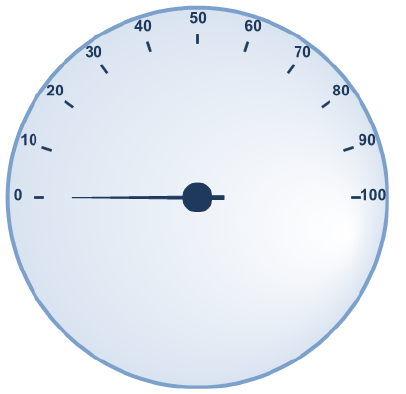Step 1 of 3: Adding C1RadialGauge to the Page
In This Topic
In this step you'll create and set up a Web site and add an empty C1RadialGauge control. Complete the following steps to add the C1RadialGauge control to a Web site:
- From the Visual Studio File menu select New │ Project. The New Project dialog box will appear.
- In the New Project dialog box expand a language in the left-hand pane and select Web. In the right pane, choose ASP.NET Empty Web Application, enter a Name for your application, and select OK. A new application will be created.
- In the Solution Explorer, right-click the project and choose Add Reference.
- In the Add Reference dialog box, locate and select the C1.Web.Wijmo.Controls and C1.Web.Wijmo.Controls.Design assemblies and click OK. The references will be added.
- Right-click the project in the Solution Explorer and from the context menu choose Add │ New Item.
- In the Add New Item dialog box choose Web Form from the list of templates, name the item "Default.aspx", and click Add. The new page should open.
- In Source view, add the following markup at the top of the page to register the C1RadialGauge assembly:
<%@ Register Assembly="C1.Web.Wijmo.Controls.4" Namespace="C1.Web.Wijmo.Controls.C1RadialGauge" TagPrefix="cc1" %>
- Depending on the assembly added, you may need to replace "C1.Web.Wijmo.Controls.4" with "C1.Web.Wijmo.Controls.3" above.
- Place your mouse between the page's initial <div></div> tags, and add the following markup to add the C1RadialGauge control to the page:
<cc1:C1RadialGauge ID="C1RadialGauge1" runat="server"></cc1:C1RadialGauge>
- Run your application, and observe that the page now looks similar to the following image:

In this step you added a C1RadialGauge control to the form, but the control is currently I unformatted. In the next step of the quick start, you'll add content to the control.
See Also